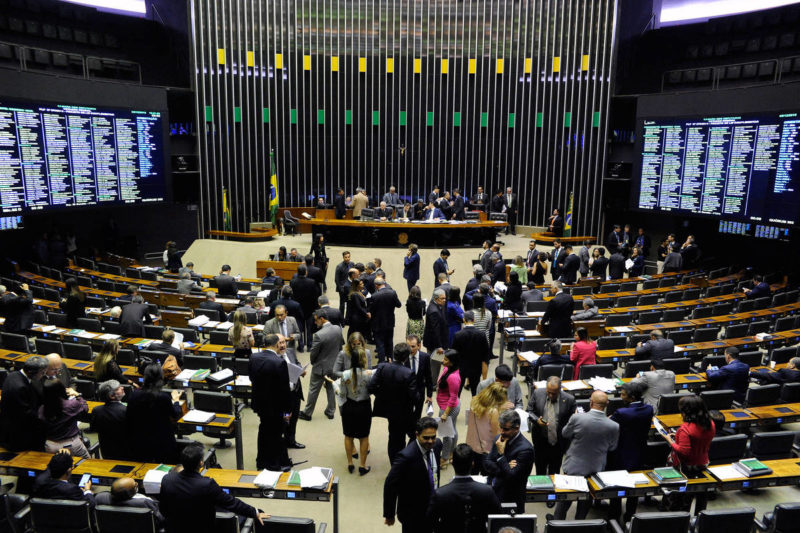Author: Andresa Porto – Political Scientist and member of GTPI.
Translated from Portuguese, original version here.
This is the first of a monthly column, De Olho em Brasilia (Watching Brazil), authored by Andresa Porto and published by the Working Group on Intellectual Property (GTPI).
The first month of Bolsonaro’s Government
I, along with all of Brazil’s civil society, have been closely monitoring the first actions taken by Bolsonaro’s administration. Its first Provisional Measure (MPV 870) comes with great concern for the legal position and autonomy of civil society entities, required to operate effectively and without interference. Article 5, II provides legal grounds for the supervision, coordination and monitoring of international organizations and non-governmental organizations.

Another important decision was the creation of the Special Secretariat of Social Articulation, within the Secretariat of Government. It is responsible for proposing the mechanisms for social participation, cooperation and agenda with civil society. In addition, the Special Secretariat for Governmental Relations of the Civil House is yet another introduction by the new administration. It will connect the government with civil society with a role around dialogue with “ministries and other organisms and entities of the federal public administration”. This new body differs from the traditional Parliamentary Affairs Sub-Committee (Art. 18), which discusses with, and advises, the legislative houses.
In this first month of the new government, the structure and composition of the ministries are being finalized. As promised during the election campaign, many positions are being filled by figures who have no history of political activity, many of which are connected to the military, and/or to ‘Operação Lava Jato’, an ongoing corruption investigation.
Civil society will continue monitor these new steps and new positions and analyze what the implications may be for civil society and access to medicines.
Davos and Brumadinho
Bolsonaro’s first international appearance as president was at the World Economic Forum in Davos, Switzerland.
Bolsonaro used his speech at the forum to refer positively to political allies and representatives of national private banks. The feeling of distrust that this created was reinforced by the cancellation of the press conference by the government’s economic team the following day.
The debate over Bolsonaro’s representation at the forum was interrupted by the tragedy at Vale’s Brumadinho mining dam. This loss of life demonstrates how vital a serious and responsible debate on environmental licensing and inspection is. The presidential discourse on deregulating the environmental industry could have further consequences and cannot be allowed to happen.
Federal Legislative
January was also marked by the resumption of legislative activity – including the forming of the parliamentary blocs, as well as election of the most important legislative seats being disputed.
Rodrigo Maia (DEM / RJ) and Davi Alcolumbre (DEM / AP) were elected presidents of the House of Representatives and the Federal Senate, respectively. This consolidates a favorable scenario for the Executive and the desired economic reforms, which would include cutting rights and introduce more insecurity for the workforce.
A second very important phase now is open: the composition and chairing of thematic commissions. The opposition bloc has 97 parliamentarians, far behind the bloc led by the party of the President of the Republic which has 301 members. The distribution of the chairs of the thematic committees depends on the size of the party blocs established at the beginning of the legislature. This year the largest bloc will have preference in choosing the first 10 commission presidencies.
It is expected that during the next few months, the new National Congress will be attempting to balance or align moral and economic issues, to try and maintain a good relationship between the base and the new government.




